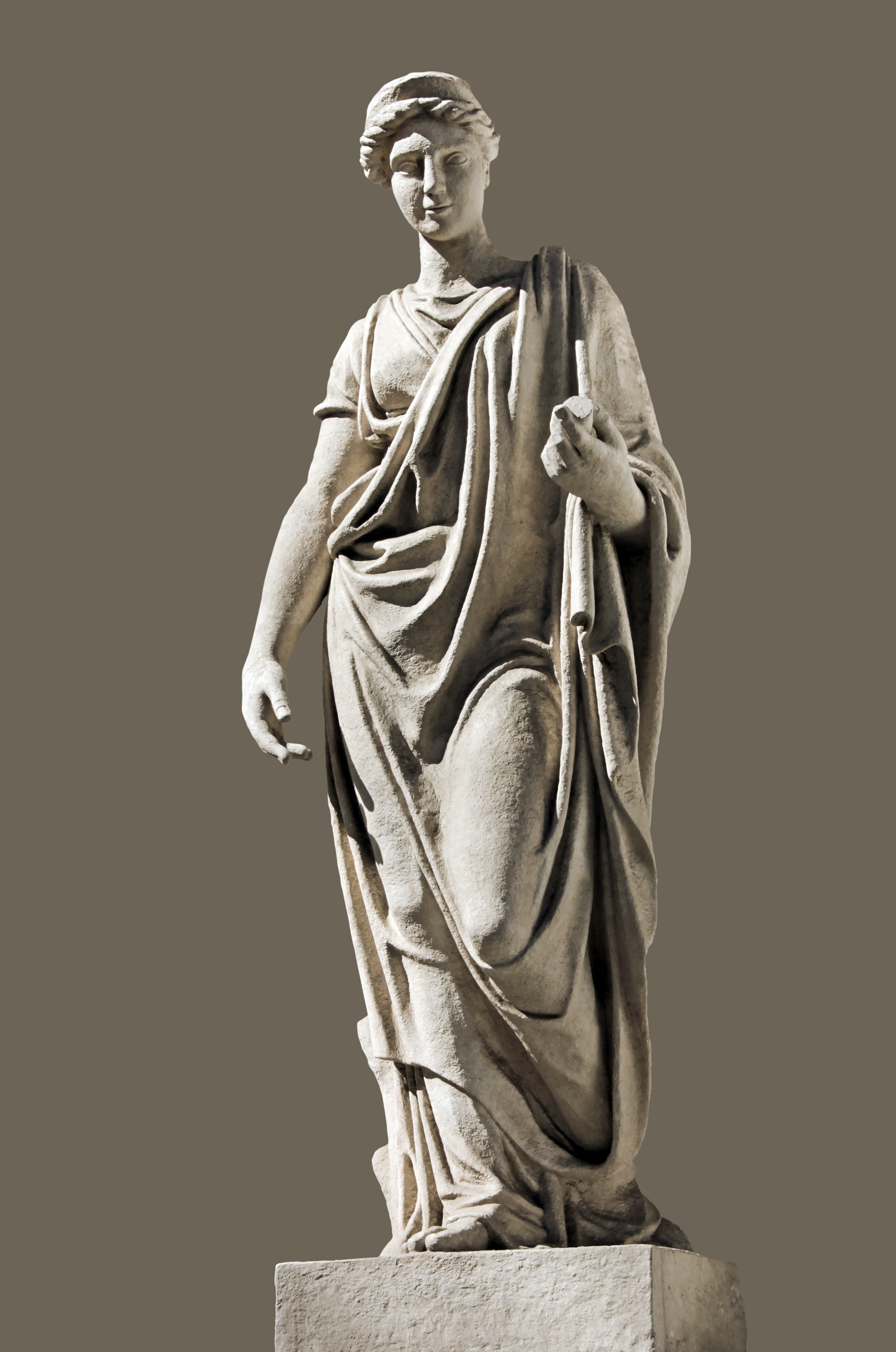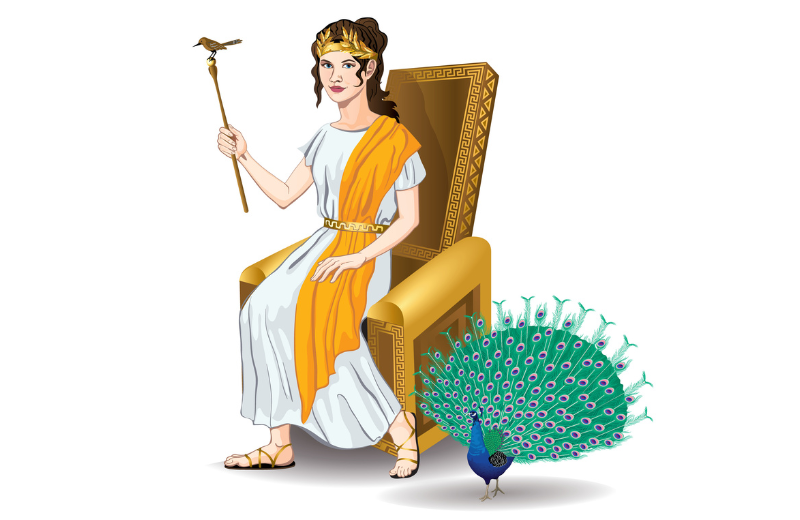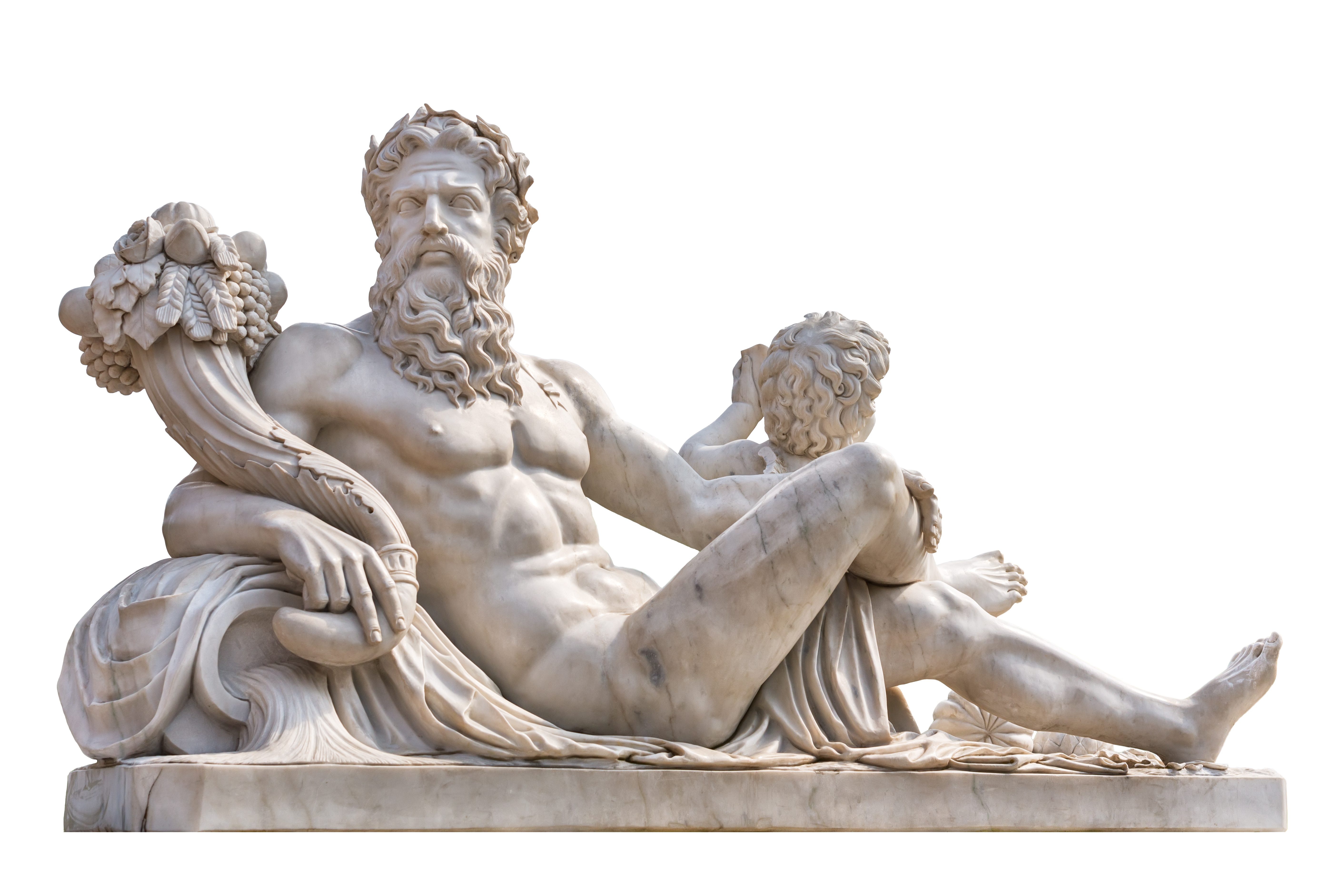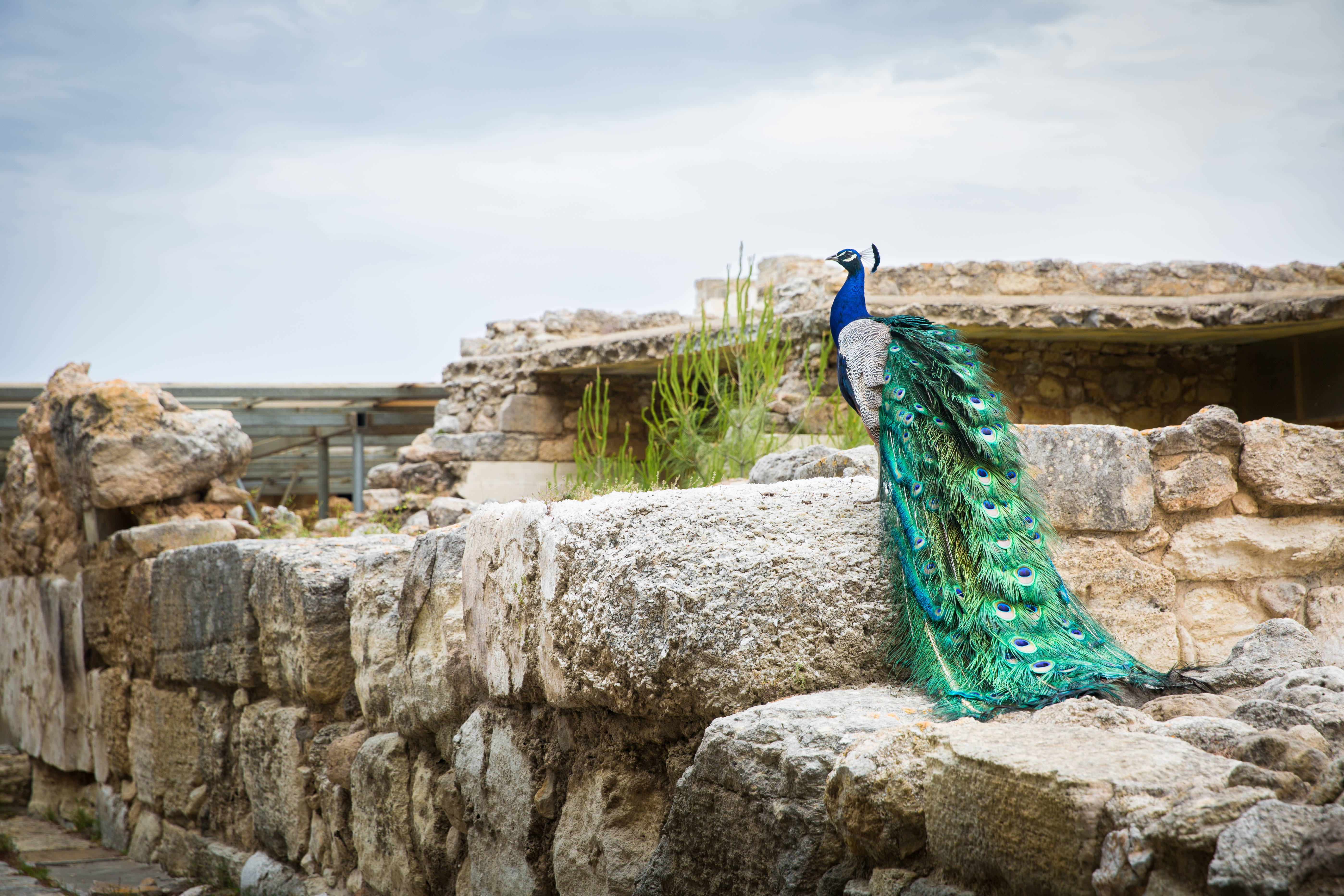Hera, the Greek goddess of marriage and queen of the Olympian gods, embodies a tapestry of stories, characteristics, and symbols that resonate throughout Greek mythology. Known for her majestic beauty, powerful presence, and complex relationship with her husband, Zeus, Hera's influence extends far beyond the realm of Mount Olympus.
In this exploration, we invite you to discover the essence of Hera, from her family roots to the myths that define her and the characteristics that make her one of the most intriguing deities in Greek mythology.
Jump to:
Who is Hera?

The Greek goddess Hera is the daughter of the Titans Cronus and Rhea, and holds the esteemed title of queen of the Olympian gods. As the goddess of marriage and birth, she oversees the sanctity of marriage and the welfare of women, particularly during childbirth. Hera's marriage to Zeus, the king of the gods, positions her at the heart of divine affairs, although this union is marked by its share of turmoil due to Zeus's infidelities.
Hera's Role
Hera plays an important role in mythology as the protector of marriage, women, and family. Her role is deeply tied to her position as the wife of Zeus and the Queen of the Olympian gods, and she is known for upholding the sanctity of marriage and ensuring loyalty between spouses. Despite facing challenges in her own marriage, she remains a powerful symbol of devotion and commitment. Hera also acts as a guardian of women, particularly during childbirth, and is often called upon for blessings of fertility and protection in family life.
Hera's Powers
Hera's powers include immortality, shape-shifting, and the ability to bless or curse those who cross her. As an Olympian, she wields her important powers to influence human affairs, particularly in matters of love and marriage. She's also known for her ability to control the skies and command storms when angered. Her divine presence is formidable, as she can bestow favour upon those who honour her and unleash wrath upon those who betray her values.
What Did Hera Look Like?

The physical traits of Hera reflect her status as the majestic Queen of the Olympian gods. She is often depicted as a regal and beautiful goddess, with a tall, graceful figure, large expressive eyes, and flowing hair, symbolising her divine authority. In classical art, Hera is frequently shown wearing a crown or diadem, emphasising her royal status, and she's often draped in elegant robes. She is sometimes accompanied by a peacock, a sacred animal representing her watchfulness and pride.
Hera’s Characteristics
Hera possesses many characteristics that define her role within the pantheon and her interactions with gods and mortals. These traits reflect the complexity of her divine persona, showcasing her virtues and flaws. Here is an exploration of Hera's key characteristics:
- Jealousy and Vengeance: Perhaps the most well-known aspect of Hera's personality is her jealousy, particularly regarding Zeus's numerous affairs. This jealousy often leads to acts of vengeance against Zeus's consorts and their offspring. Despite this, her actions can also be seen as attempts to uphold the sanctity of marriage and fidelity.
- Maternal and Protective: Beyond her jealousy, Hera exhibits a strong maternal instinct. She fiercely protects her children and extends her guardianship to all women, particularly in their roles as wives and mothers. This protective nature underscores her role as the goddess of marriage and childbirth.
- Authority and Dignity: As the queen of the Olympian gods, Hera commands great authority and dignity. She is often depicted as regal and commanding, with a presence that demands respect from both gods and mortals. Her role as Zeus's consort further amplifies her status and power within the divine hierarchy.
- Loyalty and Commitment: Despite the challenges in her marriage, Hera remained loyal to Zeus and committed to their union. This loyalty reflects her role as the goddess of marriage, embodying the ideals of commitment and perseverance through adversity.
- Cunning and Strategic: Hera is not only powerful in terms of her divine abilities but also in her intellect. She often resorts to cunning strategies to achieve her ends, whether dealing with Zeus's infidelities or navigating the complex dynamics of the Olympian gods.
- Compassion and Benevolence: While less frequently highlighted, Hera's compassionate side emerges in certain myths, particularly in her interactions with certain mortals and gods. This aspect of her character shows her capacity for kindness and mercy, balancing her vengeful tendencies.
- Determination and Perseverance: Hera's actions, whether driven by jealousy, protection, or vengeance, often exhibit a strong sense of determination and perseverance. She pursues her goals with relentless dedication, showcasing her indomitable spirit.
Hera’s Myths and Legends
The mythology surrounding Hera is rich and complex. Each myth serves as a window into the values, fears, and aspirations of ancient Greek society, with Hera often playing a key role in the drama that unfolds. Let’s delve into four of Hera's most compelling myths, revealing the depth of her character and the impact of her actions.
The Judgement of Paris
One of the most significant myths about Hera is The Judgement of Paris, which set the stage for the Trojan War. The myth begins with a dispute among the goddesses Hera, Athena, and Aphrodite over who was the fairest. The young prince Paris of Troy was chosen to decide. Each goddess offered him a bribe: Hera promised him power, Athena wisdom in battle, and Aphrodite the love of the most beautiful woman in the world, Helen.
Paris ultimately chose Aphrodite, spurning Hera. This decision led to the Trojan War and cemented Hera's enmity towards Troy. Hera's involvement in the conflict, driven by her desire for revenge against Paris for his judgement, showcases her strategic mind and her relentless pursuit of what she believes to be justice.
The Persecution of Hercules
Perhaps no myth better illustrates Hera's vindictive nature than her treatment of Hercules, the son of her husband Zeus and the mortal woman Alcmene. Furious at Zeus's infidelity and the existence of his demigod son, Hera sought to destroy Hercules from the moment of his birth. She sent serpents to kill him in his cradle, but the infant Hercules, displaying his god-like strength, strangled the snakes.
Hera's vendetta didn't stop there. She later drove Hercules to madness, causing him to commit a grave crime that led to his famous Twelve Labours. These stories testify to Hera's complex nature—her actions are driven by a sense of betrayal and a need to uphold her dignity and the sanctity of her marriage.
The Transformation of Io
Another notable myth featuring Hera's wrath involves Io, a mortal woman and one of Zeus's lovers. Zeus transformed her into a white cow to protect Io from Hera's jealousy. However, Hera was not deceived. She demanded the cow as a gift and then placed Io under the watchful guard of Argus, a hundred-eyed giant, to keep her separated from Zeus.
Eventually, Hermes freed Io on Zeus's orders, but Hera sent a gadfly to sting Io for eternity, driving her to wander the earth in pain. The story of Io reflects Hera's pursuit of those who threaten her marriage and her inventive methods of punishment. It also highlights the tragic consequences of the gods' quarrels on the lives of mortals.
The Marriage of Hephaestus
The birth and marriage of Hephaestus, the god of blacksmiths and Hera's son, also reveal aspects of Hera's character. In some versions of the myth, Hera, disappointed by Hephaestus's appearance, threw him from Olympus, causing his physical disability. In others, Hephaestus was born lame, and Hera cast him out because of his imperfection.
Hephaestus's revenge involved crafting a magical throne that, once seated upon by Hera, trapped her. He only freed her after being given the beautiful Aphrodite as his wife, showcasing the complexities of divine relationships and the unexpected ways in which they resolve their disputes.
Hera's Relationships, Children and Family Tree

Hera's relationships offer a fascinating glimpse into the divine family dynamics in Greek mythology:
The Divine Union: Zeus and Hera's Relationship
At the heart of Hera's mythological narrative is her marriage to Zeus, the king of the gods. This divine union represents the joining of sky and earth, a powerful symbol of unity and authority in the cosmos.
However, the marriage is anything but serene. Zeus's infamous infidelities and Hera's subsequent jealousies and retaliations are a recurring theme in Greek myths, illustrating the tensions that underpin their relationship.
Despite these challenges, the bond between Zeus and Hera remains unbroken, symbolising the strength of marriage and the complexities in relationships of power. Their union, fraught with conflict and reconciliation, mirrors the tumultuous nature of human relationships, elevating their divine marriage as a model of endurance and commitment through trials.
Offspring of Hera and Zeus
The children of Hera and Zeus embody different aspects of Hera's and Zeus's dominions, reflecting their powers and responsibilities within the pantheon.
- Ares, the God of War: Ares, perhaps the most well-known of Hera and Zeus's children, personifies the brutal and violent aspects of warfare. His aggressive nature and penchant for conflict often put him at odds with other gods and humans. Ares's character underscores the destructive side of power, a theme recurrent in the stories of the Olympian gods.
- Hebe, the Goddess of Youth: Hebe represents the youth and vigour of the divine beings. As the cupbearer to the gods, her role is to serve the nectar and ambrosia that sustain their immortality. Hebe's association with youth and renewal underscores the gods' desire for eternal vitality and the importance of nurturing and care within the divine family.
- Hephaestus, the God of Blacksmiths and Fire: The tale of Hephaestus's birth, rejection, and eventual return to Olympus speaks volumes about Hera's complex nature. In some myths, Hera alone gave birth to Hephaestus and cast him from Olympus upon seeing his imperfection. Hephaestus's mastery over fire and craftsmanship and his creation of unparalleled weapons and artefacts for the gods, reflects the transformative power of adversity and the value of skill and ingenuity.
Hera's Extended Family Tree - Who is Hera related to?
Hera's family tree branches into a vast network of deities and mortals that populate the rich landscape of Greek mythology. As the daughter of the Titans Cronus and Rhea, Hera is part of a divine lineage that predates the Olympians, connecting her to the forces of the universe. Her siblings include Poseidon, Hades, Demeter, Hestia, and Zeus, with whom she shares the rule of the cosmos.
This extended family tree showcases the interwoven destinies and allegiances among the gods, revealing a complex tapestry of relationships that influence the unfolding of mythological narratives. The interactions between Hera and her family often reflect broader themes of loyalty, power struggles, and the quest for harmony within the pantheon.
The Symbols of Hera

Hera is represented by several powerful symbols, each shedding light on her complex nature and the roles she plays within mythology:
- Peacock: The peacock symbolises the beauty and majesty of Hera, with the eyes on its feathers representing her all-seeing nature and vigilance. This bird also symbolises immortality, reflecting Hera's eternal nature.
- Cow: A symbol of fertility and nurturing, the cow reflects Hera's role in childbirth and her protective stance towards women. It also embodies patience and serenity, aspects of Hera's maternal character.
- Pomegranate: Associated with marriage and fertility, the pomegranate represents Hera's union with Zeus and her role as a guardian of marital fidelity. The fruit's abundance of seeds symbolises fertility and the continuity of life.
- Diadem: The diadem or crown signifies Hera's sovereignty and status as the Olympian gods' queen. It symbolises her authority, dignity, and central role in the divine hierarchy.
- Sceptre: A symbol of power and governance, the sceptre denotes Hera's ability to enact justice and maintain order, especially in matters related to marriage and the protection of women.
- Lion: Representing strength, courage, and protection, the lion underscores Hera's powerful and regal nature. It also highlights her protective instincts, particularly in safeguarding the sanctity of marriage.
Frequently Asked Questions About Hera
Was Hera good or bad?
Hera is a complex character. She represents the protective and nurturing aspects of marriage and womanhood, yet her vindictive streak causes her to go to great lengths to uphold her dignity and the laws she governs. Hera's duality illustrates the multifaceted nature of the gods, who, like humans, possess both commendable and flawed traits.
Who is Hera's husband?
Hera’s husband is Zeus, the ruler of Mount Olympus and the king of the gods in Greek mythology. Their marriage was powerful but often troubled, as Zeus’s frequent infidelities led to Hera’s well-known jealousy and acts of vengeance.
Why did Hera marry her brother Zeus?
In Greek mythology, familial relationships among the gods often differ significantly from human social norms. Hera married Zeus, her brother, in a union symbolising the consolidation of power among the Olympian gods. This marriage was about establishing a divine order and hierarchy within the pantheon.
Did Zeus and Hera have a child together?
Zeus and Hera had several children together, including Ares, the god of war; Hebe, the goddess of youth; Eileithyia, the goddess of childbirth; and Hephaestus, the god of blacksmiths and craftsmanship. These offspring played significant roles in Greek mythology, embodying aspects of their parents' powers and domains.
Does Hera get pregnant?
In myths, Hera conceives and gives birth to several children, both with Zeus and through miraculous births. For instance, Hephaestus is sometimes said to have been born from Hera alone, without the involvement of Zeus, as a form of retaliation for Zeus's birth of Athena.
Who are Hera's 5 children?
Hera's children with Zeus include Ares, Hebe, Eileithyia, and Hephaestus. Another child often associated with Hera, though not directly her biological offspring in all myths, is Typhon, whom she is said to have fostered out of spite for Zeus.
Was Hera a beautiful goddess?
Hera was considered one of the most beautiful goddesses on Mount Olympus. She was often depicted as majestic and queenly, embodying the ideal of divine femininity and grace.
What did goddess Hera look like?
Hera is often depicted as a regal and mature woman, exuding authority and dignity. She is usually shown wearing a crown or diadem and holding a sceptre, symbols of her status as queen of the gods. Her attire is that of a queen, elaborate and fitting for the wife of Zeus.
Who did Hera turn into a cow?
Hera transformed Io, a mortal woman and one of Zeus's lovers, into a cow to hide her from Zeus and punish her. This story illustrates Hera's jealousy and the extreme measures she would take against those she perceived as rivals.
Did Hera ever forgive Hercules?
While Hera's persecution of Hercules is a central theme in his myths, some stories suggest that upon his death, Hercules was deified and married Hebe, indicating a form of reconciliation or forgiveness from Hera.
How many husbands did Hera have?
In Greek mythology, Hera was married only to Zeus. Their union was central to the Olympian gods' social order, and Hera had no other husbands besides Zeus.
Recommended for you!
Best SellersDiscover Greek Mythology with Centre of Excellence
Immerse yourself in the enchanting world of deities, heroes, and timeless tales with our Greek Mythology Diploma Course. Crafted for those captivated by the rich tapestry of ancient narratives, this course offers a deep dive into the stories that have shaped cultural legacies for millennia.
Why Centre of Excellence?
- Accessibility: We believe in making education accessible to all. Our courses are affordable, ensuring that everyone has the opportunity to explore their interests and expand their knowledge.
- Flexibility: Our courses are designed with your lifestyle in mind, offering the flexibility to learn at your own pace. This approach allows you to effortlessly weave your education into your daily life.
- Comprehensive Curriculum: Spanning a wide range of topics, our curriculum delves into the various aspects of Greek mythology, meeting the needs of those intrigued by ancient gods, epic battles, and heroic quests.
- Dedicated Support: Enrolment comes with personalised tutor support and access to a community of like-minded learners. We provide a supportive environment that encourages exploration and learning at every step.
Special Invitation
For a limited time, we're offering our Greek Mythology Diploma Course for just £29, saving you over £100!












